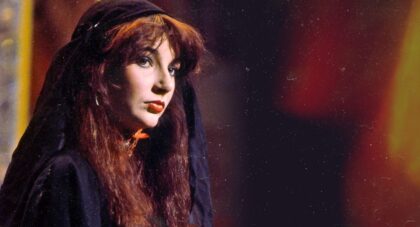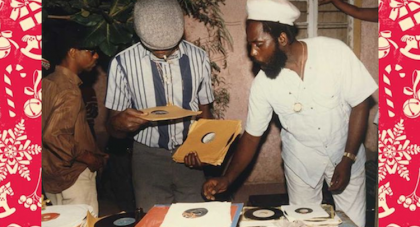Beth Orton has spent 20-some years walking the margins between folk rock and electronic music. Before her 1996 classic Trailer Park, she recorded an entirely electronic debut, SuperpinkyMandy, but even then, she covered cosmic balladeer John Martyn's "Don't Want to Know About Evil." In Orton's hands, the lines between the genres have always been smudged -- she's collaborated with everyone from Terry Callier to William Orbit to Ben Watt -- but with her new album, Kidsticks, Orton makes a decisive statement.
"...I would go as far as to say this resolutely is not a folk record," Orton says via the phone from her home in Los Angeles, her accent making plain her English roots.
She has a point. Kidsticks has more in common with Stereolab or Four Tet than the gentle folk of 2006's Jim O'Rourke-produced Comfort of Strangers or Sugaring Season, the album that followed it six years later. Built on loops engineered by Orton and Andrew Hung of Fuck Buttons, the new album is vivid and neon-colored. "Wave" rides a funky, shimmering pulse; "Flesh and Blood" bursts with interlocked melodies; "Petals" rises and falls with tremendous swells of synthesized bass. Orton's hardly abandoned her lyrical focus. These songs, concerning the passage of time and exploring concepts of identity, feature some of her best lyrical work, not obscured, but enhanced, by the dense sounds that flutter around it. "There's starlight burning in our hearts tonight," Orton sings on the slow motion ballad "Dawnstar," a line which encapsulates the vividness of her prose on the record.
Orton spoke with AD about building the album's framework from rhythm loops, the influence of shuffle mode, and why this feels like the album she's been waiting to make for a long time.
Aquarium Drunkard: You start off “Snow” singing, “I’ll astrally project myself into the life of someone else.” That’s one of my favorite metaphors for the act of releasing music. When you put out a record, that’s what you’re doing: releasing your voice and experiences into the lives of people listening. Where did that lyric come from?
Beth Orton: That’s a lovely way of interpreting it. I like that way of interpreting better than any. I don’t know, I was just playing with that idea. The themes that come up a lot on this record deal with time: a sense of time travel, a sense of shifting time, of time not being quite real.
AD: A shared illusion, at least.
Beth Orton: We sort of slip between time without really realizing it. We’re always traveling through time, our daily space is constantly between dreams. I play around with identity a lot on the record, and I just love the idea of astral projection. What the fuck does it actually mean, you know? Time travel – that’s definitely a theme of the record.
Only the good shit. Aquarium Drunkard is powered by its patrons. Keep the servers humming and help us continue doing it by pledging your support.
To continue reading, become a member or log in.


